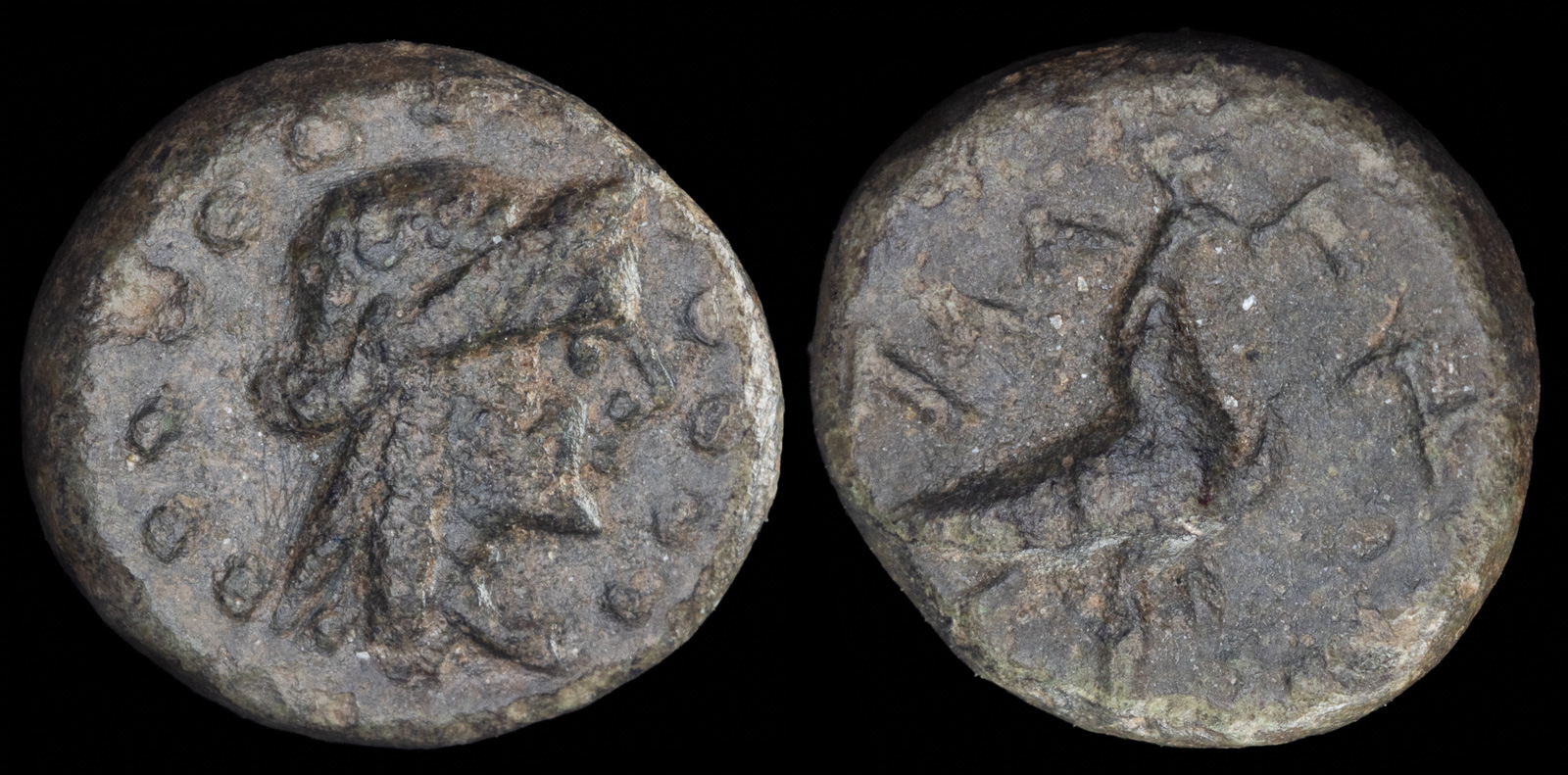
Karia, Alabanda
Circa 150 BCE
AE 9mm 0.88g
Obv: laureate head of Apollo right
Rev: AΛABANΔEΩN, raven standing right
BMC 17 var. (ethnic); otherwise unpublished
According to legend, Alabanda was founded by the hero Alabandus, but was he a human or a horse? That’s a valid question because in the Carian language “ala” means “horse” and “banda” means “victory.”
So was Alabandus a horse? Or was he a hero but his horse brought victory? These are the painful questions that perplex both mankind and horsekind.
During Seleukid times, Alabanda was a member of the Chrysaorian League, whose goal it was to confuse orthographers for hundreds of years thereafter. Its other members were Alinda, Amyzon, Keramos, Mylasa, Kaunos, Stratoikeia, and Thera (Caria).
According to Cicero, the hero Alabandus was worshipped at Alabanda. According to Strabo, Alabanda was known for its high living – like a version of Sybaris.
Philip V takes Alabanda.
Antiochos III is defeated by Scipio Asiaticus at the Battle of Magnesia. Through treaty, Ephesos comes under the Attalids. Alabanda comes under Roman control.
Quintus Labienus takes Alabanda with a Parthian force. His men are then slaughtered by the inhabitants, but the Parthians then loot the city.